Berkeleyan
Two learned societies elect five Berkeley faculty
NAS taps Botchan, Rine, and Smoot; APS welcomes Rochberg, Schekman
![]()
| 08 May 2008
Two of the nation’s most prestigious scholarly societies have announced the election of new members, among whose number are five leading lights from the Berkeley faculty.
Three faculty members are among 72 new members and 18 foreign associates elected to the National Academy of Sciences (NAS), one of the highest honors that can be accorded a U.S. scientist or engineer.
The new members are Michael Botchan, professor of molecular and cell biology; Jasper Rine, professor of molecular and cell biology, director of UC Berkeley’s Center for Computational Biology, and a Howard Hughes Medical Institute professor; and Nobel laureate George Smoot, professor of physics. Smoot holds a joint appointment as a research scientist at Lawrence Berkeley National Laboratory.
The members were elected “in recognition of their distinguished and continuing achievements in original research,” according to the academy.
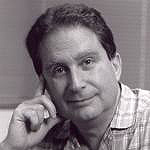 Michael Botchan |
Botchan, who co-chairs the Department of Molecular and Cell Biology and teaches biochemistry and molecular biology, has worked for three decades to unlock the secrets of the ways cells create copies of their own genetic material.
Showing a poet’s touch, he has described this fundamental life process as “the elaborate dance of replication.”
Viruses, with their simple gene structure, were the first to yield to his inquiry. More recently, Botchan has focused on DNA replication and genetic expression in fruit flies, more complicated organisms.
His work, with others, has helped show that chromosomal copying varies little among the basic life forms, supporting the idea that all of them go back to one ancestral cell.
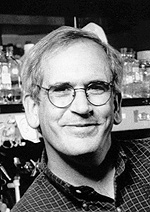 Jasper Rine |
His work on yeast cells yielded new information about the ways a genome is assembled and modified. Rine’s contributions in this field set the stage for the biotech industry’s mass production of insulin for the treatment of diabetes. One study he co-authored found a promising new approach to stopping cancers from growing.
Election to the NAS is just the most recent honor accorded Rine, a winner of Berkeley’s Distinguished Teaching Award in 2001. Just prior to his election to NAS he was named a member of the American Academy of Arts and Sciences. And two years ago he was named a Howard Hughes Medical Institute professor and given $1 million to remake the hands-on lab portion of Bio 1A, the introductory biology course taken each year by more than 1,000 undergraduates.
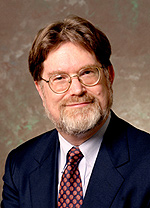 George Smoot |
A Berkeley professor since 1994 and a Lawrence Berkeley Lab astrophysicist since 1974, Smoot helped build and observe the universe from ground-based telescopes, balloon-born instruments, and satellites, the most famous of which is NASA’s Cosmic Background Explorer (COBE). He also co-authored a popular book on cosmology, Wrinkles in Time.
With this year’s election, Berkeley is now home to 132 members of the NAS, which is regularly called upon by government leaders to advise on matters of science and technology. There are now 2,041 active members and 397 foreign associates in the academy.
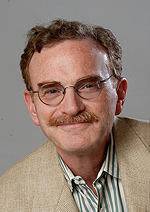 Randy Schekman |
Meanwhile, two other Berkeley faculty are among 38 new members recently elected to the American Philosophical Society, the oldest learned society in the United States. The new members on the Berkeley faculty are Francesca Rochberg, the Catherine and William L. Magistretti Distinguished Professor of Near Eastern Studies, and Randy Schekman, professor of molecular and cell biology and a Howard Hughes Medical Institute investigator.
Three Berkeley alumni also were awarded membership in the society: Joseph Leo Koerner, who received his M.A. in 1984 and his Ph.D. in 1988 in the history of art and is professor of the history of art and architecture at Harvard University; Joyce Marcus, who graduated from Berkeley in 1969 with an A.B. in anthropology and is a professor of anthropology at the University of Michigan; and Susan Solomon, a senior scientist at the National Oceanic and Atmospheric Administration who earned her M.S. in 1979 and her Ph.D. in 1981 in chemistry from Berkeley.
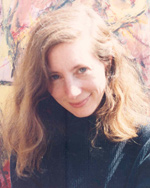 Francesca Rochberg |
Other new members announced April 26 include Mark Morris, founder and director of the Mark Morris Dance Group, whose West Coast home is Cal Performances; former U.S. Vice President Albert Gore Jr.; David Remnick, editor of The New Yorker; filmmaker Martin Scorsese; Google Vice President Vinton Cerf; and U.S. Supreme Court Associate Justice John Paul Stevens.
The American Philosophical Society, founded in 1743 by Benjamin Franklin, honors and engages leading scholars, scientists, and professionals through elected membership and opportunities for multidisciplinary intellectual fellowship. It supports research, discovery, and education through grants and fellowships, lectures, publications, prizes, and exhibitions. The society has 975 elected members, 809 resident members, and 166 international members from more than two dozen foreign countries. Since 1900, more than 260 members have received the Nobel Prize.

